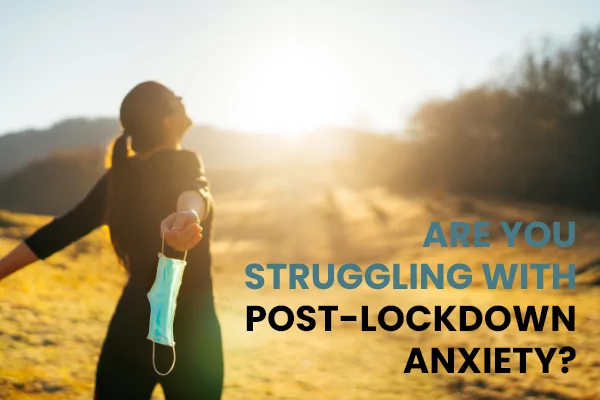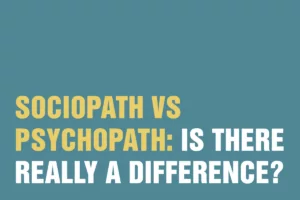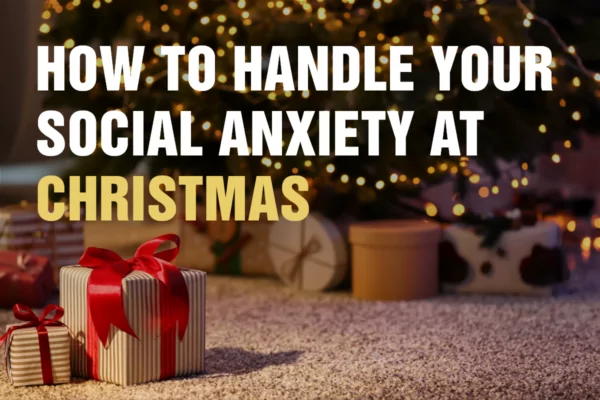For many of us, the past year has been challenging, with most people having to try to cope with the mental challenges lockdown has presented. Whether it be combating loneliness, depression or dealing with an overwhelming sense of anxiety about what the future holds, almost everyone has felt the psychological impacts of the Covid-19 pandemic. In fact, since the onset of Covid-19, more than two-thirds of UK adults have reported feeling worried about the future, feeling stressed or feeling anxious.
However, the battle is not over for many people, and as lockdowns start to ease and we begin to enter back into normality, there are new challenges to face.
Getting back to “normal”
While many people have been patiently awaiting the day that they can return to old routines, the idea of leaving relative isolation leaves many of us feeling anxious. Not only do we have to completely change the way we have been living for the past 18 months, but we also have to think about relationships with friends, family and work colleagues and whether or not we are still the same person we once were. Undoubtedly, a large percentage of people have spent excessive time on social media during the lockdown, which has left them feeling like they haven’t “made the most” of their time at home, causing further anxiety about getting back to normality.
However, for anyone reading this who has had similar thoughts – you are not alone. Post-lockdown anxiety is to be expected and will be something a large number of the population will experience.
Although it seems strange to admit, the lockdown has been quite comforting for many people: the commute to work is significantly less stressful; there’s no need to plan your outfits for the week, and our social obligations have been removed altogether. As a result, the thought of going back to how things were prior to March 2020 can be incredibly daunting. If this sounds a lot like you – how can you begin to cope?
Coping with post-lockdown anxiety
If you’re feeling the effects of post-lockdown anxiety, there are several things you can do to help alleviate the symptoms and help ease yourself out of pandemic living.
Speak to someone
Often speaking to a family member, a friend, or a work colleague can make all the difference when we’re feeling anxious. Not only does it allow you to confide in someone and express how you’re feeling. It also provides you with an opportunity to connect with someone who might be feeling the same.
When we’re feeling anxious, we often feel isolated and disconnected, when more often than not, that’s not the case at all. It’s important to remember that other people around you might be going through the exact same thing, and by expressing yourself and opening up, you give other people a chance to discuss how they’re feeling.
Prepare yourself
If you suffer from anxiety, you might already know that you will experience post-lockdown anxiety in some form or other. In which case, it’ll help to prepare yourself by getting into a routine and identifying what aspects of getting back to old ways of life might cause you the most anxiety. For example, if you’re worried about being in large groups of people, try going to places where there might only be small groups of crowds first and ease yourself into it.
Going straight back into getting onto packed tubes or walking down a busy street could be overwhelming, so take your time and remember to go at your own pace.
Don’t be too hard on yourself
Coming out of lockdown and going back to old routines isn’t always going to be easy, so if you feel yourself becoming overwhelmed, don’t be hard on yourself. It’s best to take things one thing at a time and not to feel like you have to do anything you’re not ready to do. You’re only human, and expecting everything to go back to the way things were might only make you feel more anxious.
Instead of focusing on when you’ve let your anxiety get the better of you, focus on the moments where you’ve overcome it and pat yourself on the back. In moments when we’re feeling most anxious, it’s important to practice self-care and remember that everybody moves at a different pace.
Be considerate of others
You might find that your post-lockdown anxiety isn’t as bad as you initially thought, which might make you want to go out and do everything you’ve been missing out on over the past 18 months. However, while you might want everyone else to join in on the fun, it’s important to remember that some people deal with post-lockdown differently and people you invite out might not be comfortable with venturing out just yet. In which case, don’t be offended if people choose to turn down your invitations. It’s nothing personal; they’re just doing what’s right for them.
Contact a specialist
If you want to ensure that your post-lockdown anxiety is managed in the best possible way, speaking to an anxiety specialist is an excellent idea – sometimes it’s hard to know what to do, and it’s even harder to identify what might be the root cause of your anxiety.
By seeking professional guidance to help you cope with post-lockdown anxiety, you’ll be able to speak with someone who can provide you with expert advice on how to approach dealing with anxiety and what measures you can take to help reduce the symptoms.
If you’re looking for professional support or you’d like to know more about dealing with anxiety and how to cope with post-lockdown anxiety, get in touch with us, and we can provide you with expert help and counselling to help you with your journey.








